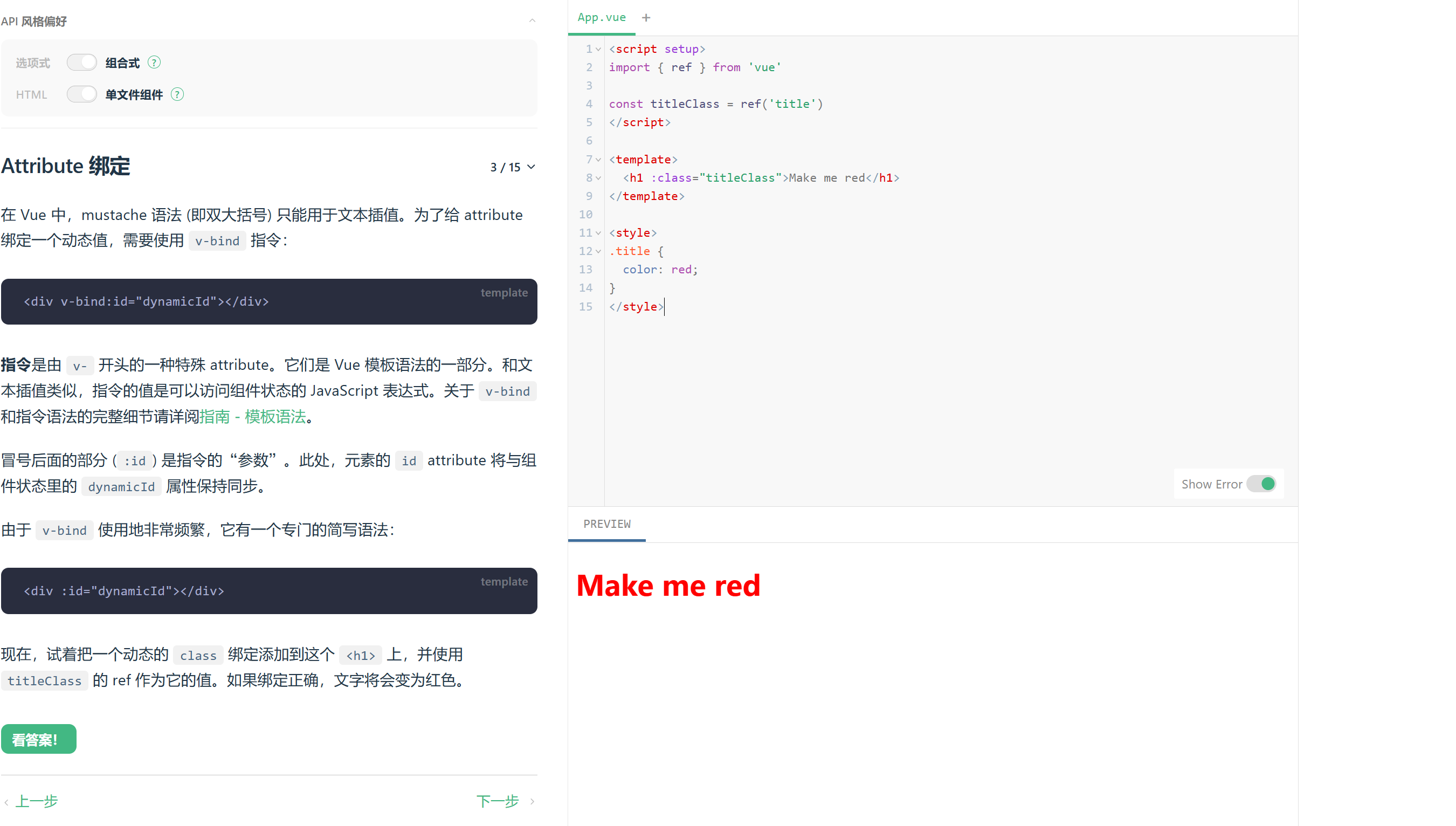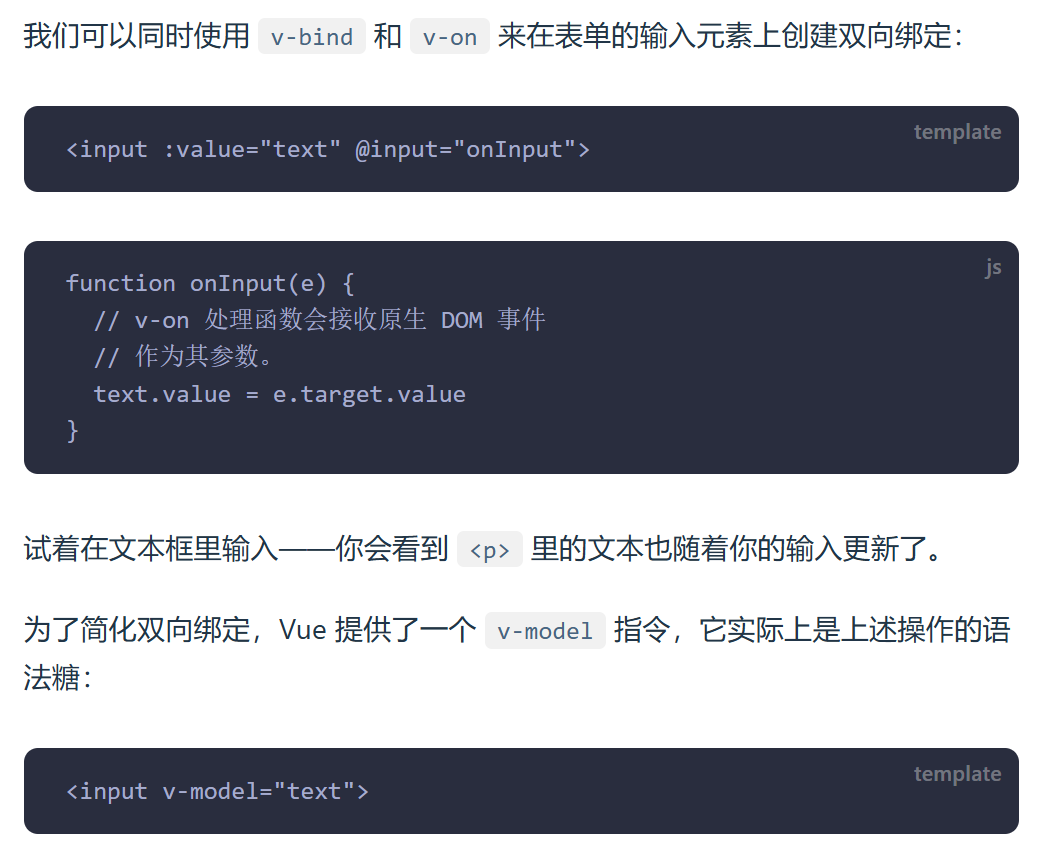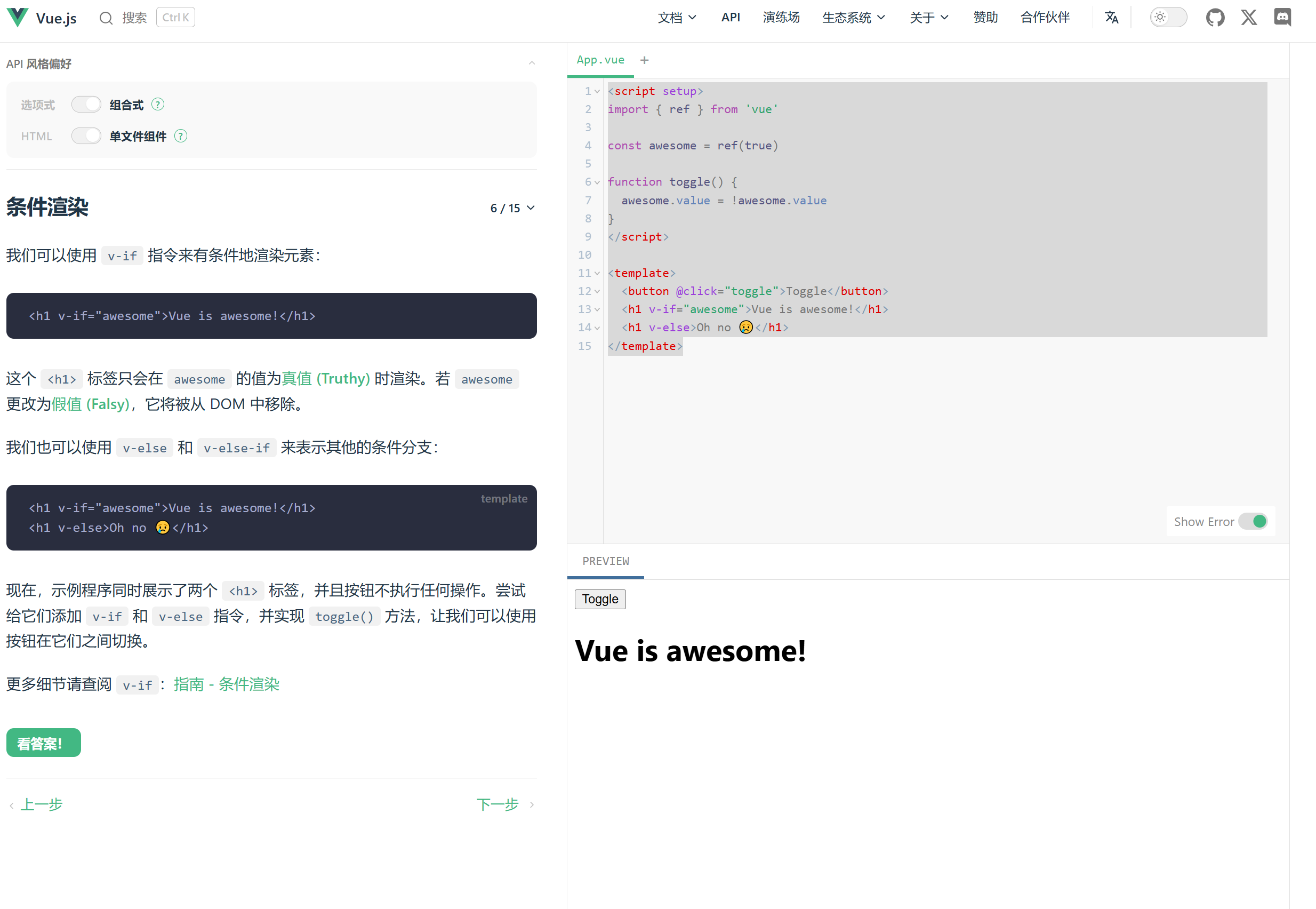教程 | Vue.js (vuejs.org)
声明式渲染
你在编辑器中看到的是一个 Vue 单文件组件 (Single-File Component,缩写为 SFC)。SFC 是一种可复用的代码组织形式,它将从属于同一个组件的 HTML、CSS 和 JavaScript 封装在使用 .vue 后缀的文件中。
Vue 的核心功能是声明式渲染:通过扩展于标准 HTML 的模板语法,我们可以根据 JavaScript 的状态来描述 HTML 应该是什么样子的。当状态改变时,HTML 会自动更新。
能在改变时触发更新的状态被称作是响应式的。我们可以使用 Vue 的 reactive() API 来声明响应式状态。由 reactive() 创建的对象都是 JavaScript Proxy
1
2
3
4
5
6
7
8
9
| import { reactive } from 'vue'
const counter = reactive({
count: 0
})
console.log(counter.count) // 0
counter.count++
|
reactive() 只适用于对象 (包括数组和内置类型,如 Map 和 Set)。而另一个 API ref() 则可以接受任何值类型。ref 会返回一个包裹对象,并在 .value 属性下暴露内部值。
在双花括号中的内容并不只限于标识符或路径——我们可以使用任何有效的 JavaScript 表达式。
template
1
| <h1>{{ message.split('').reverse().join('') }}</h1>
|
现在,试着自己创建一些响应式状态,
Attribute 绑定 v-bind
1
2
3
4
5
6
7
8
9
10
11
12
13
14
15
16
17
|
<script setup>
import { ref } from 'vue'
const titleClass = ref('title')
</script>
<template>
<h1 :class="titleClass">Make me red</h1>
</template>
<style>
.title {
color: red;
}
</style>
|

时间监听 v-on : click
v-on: click = “aaa” : 或者 @click= “aaa”
1
2
3
4
5
6
7
8
9
10
11
12
13
14
15
16
17
18
| <script setup>
import { ref } from 'vue'
const count = ref(0)
function increment() {
// 更新组件状态
count.value++
}
</script>
<template>
<!-- 使此按钮生效 -->
<button v-on:click="increment">Count is: {{ count }}</button>
</template>
|

表单绑定 v-model

v-model 会将被绑定的值与 <input> 的值自动同步,这样我们就不必再使用事件处理函数了。
v-model 不仅支持文本输入框,也支持诸如多选框、单选框、下拉框之类的输入类型。我们在指南 - 表单绑定中讨论了更多的细节。
1
2
3
4
5
6
7
8
9
10
11
12
13
14
15
16
17
18
19
20
21
22
23
24
25
26
27
28
29
30
31
32
|
<script setup>
import { ref } from 'vue'
const text = ref('')
function onInput(e) {
text.value = e.target.value
}
</script>
<template>
<input :value="text" @input="onInput" placeholder="Type here">
<p>{{ text }}</p>
</template>
# 使用v-model 简化
<script setup>
import { ref } from 'vue'
const text = ref('')
</script>
<template>
<input v-model="text" placeholder="Type here">
<p>{{ text }}</p>
</template>
|
条件渲染

1
2
3
4
5
6
7
8
9
10
11
12
13
14
15
16
| <script setup>
import { ref } from 'vue'
const awesome = ref(true)
function toggle() {
awesome.value = !awesome.value # 做取反
}
</script>
<template>
<button @click="toggle">Toggle</button>
<h1 v-if="awesome">Vue is awesome!</h1>
<h1 v-else>Oh no 😢</h1>
</template>
|




